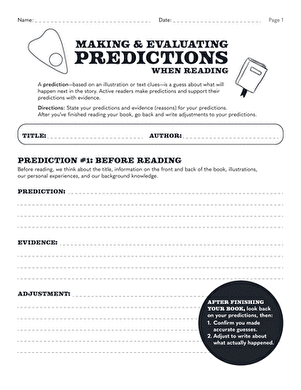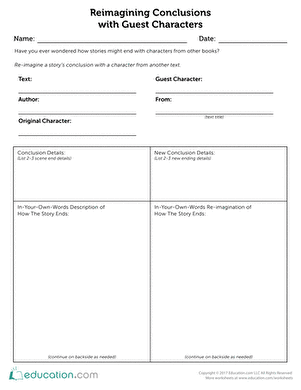5th Grade Make Predictions Worksheets
About 5th Grade Make Predictions Worksheets
On Education.com, 5th grade make predictions worksheets offer young studentspractice in developing critical thinking skills by exploring story ideas, historical data, and scientific concepts. These downloadable materials help childrenyna improve their ability to analyze information, use prior knowledge, and make reasonable guesses. The worksheets include engaging exercises and science experiments crafted by educators to reinforce prediction strategies and deepen understanding.
Discover a variety of 5th grade prediction activities on Education.com, such as worksheets, lesson plans, and interactive exercises that support classroom learning and homework practice. Resources focus on helping students apply logic to variety of contexts, from reading stories to scientific experiments. Materials provide step-by-step guidance, answer keys, and creative challenges to make learning predictions both fun and educational.
Educator and parent 5th grade make predictions worksheets enable structured learning, saving time while providing guided practice. Resources enhance critical thinking, scientific inquiry, and sequencing skills, equipping children with foundational tools for academic growth. By using these materials, adults can create engaging lessons and learning experiences that strengthen cognitive abilities and encourage curiosity.
Discover a variety of 5th grade prediction activities on Education.com, such as worksheets, lesson plans, and interactive exercises that support classroom learning and homework practice. Resources focus on helping students apply logic to variety of contexts, from reading stories to scientific experiments. Materials provide step-by-step guidance, answer keys, and creative challenges to make learning predictions both fun and educational.
Educator and parent 5th grade make predictions worksheets enable structured learning, saving time while providing guided practice. Resources enhance critical thinking, scientific inquiry, and sequencing skills, equipping children with foundational tools for academic growth. By using these materials, adults can create engaging lessons and learning experiences that strengthen cognitive abilities and encourage curiosity.





